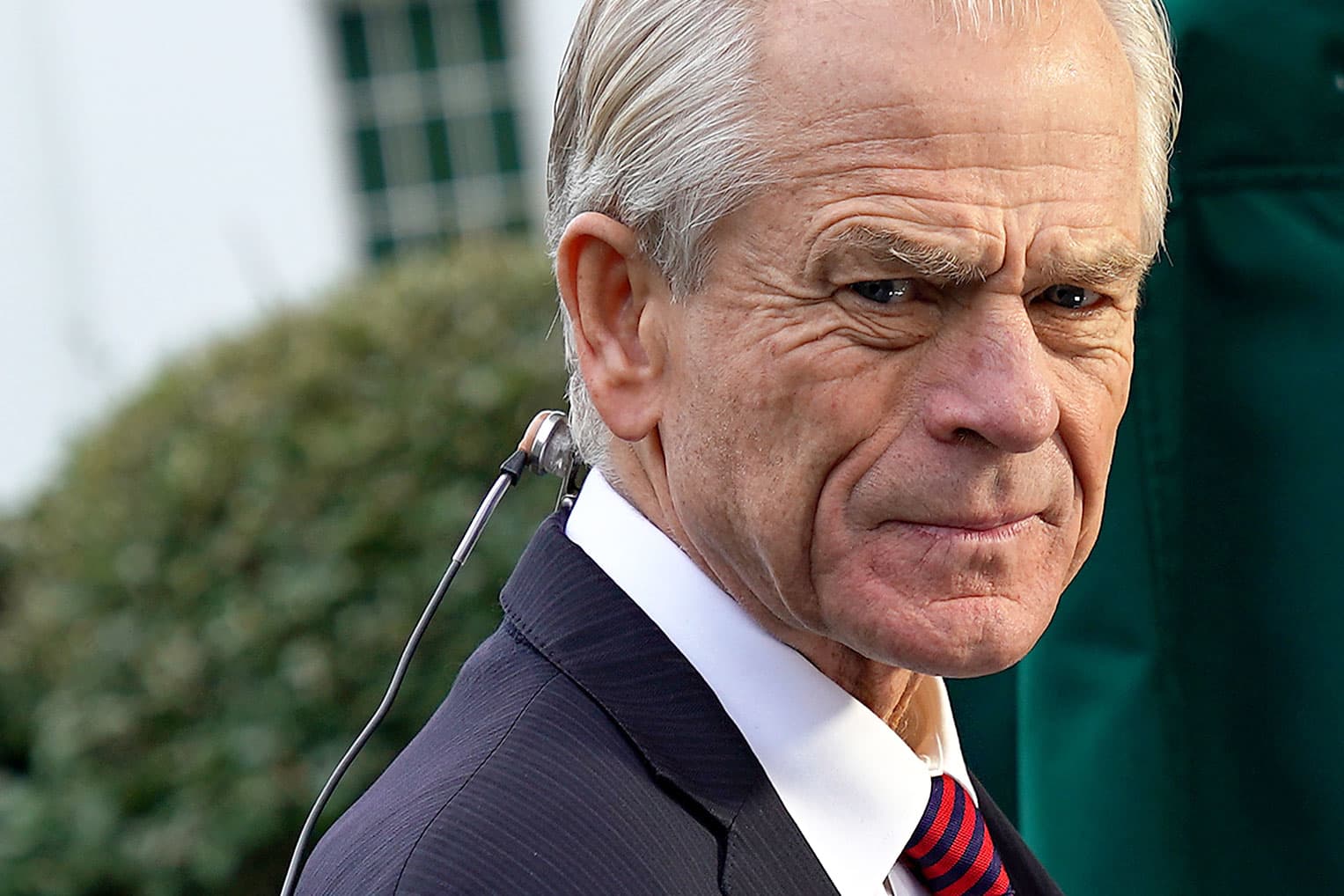
One of President Donald Trump’s leading trade advisors slammed Big Pharma’s attempts to lobby against an executive order he is preparing to push companies to relocate medical supply chains to the United States.
When asked about the push by lobbying group PhRMA against the executive order, Peter Navvaro told CNBC, “This Big Pharma spin is simply a desperate attempt to stop President Donald J. Trump from moving the production of our essential medicines and medical equipment and supplies to the U.S.”
Navarro, known for his hawkish views on China, told CNBC earlier this week that he is bringing an executive order to Trump that would aim to reduce United States dependency on foreign manufacturers for medicine. About 72% of pharmaceutical ingredient manufacturers supplying the U.S. are located overseas, including 13% in China, according to October congressional testimony by Janet Woodcock, director of the Food and Drug Administration’s Center for Drug Evaluation and Research.
The executive order Navarro is planning will streamline regulatory approvals for “American-made” products and look to impose similar FDA restrictions on U.S. facilities as those abroad. It will also encourage the U.S. government, including the Department of Defense, Department of Health and Human Services and Department of Veterans Affairs, to only buy American-made medical products.
PhRMA has rolled out a heavy lobbying push in return, according to people familiar with the industry’s thinking and a document seen by CNBC.
The trade group – which represents companies including Bristol-Myers Squibb, Pfizer, Johnson & Johnson and Sanofi – contends that too much manufacturing in the U.S. makes it as vulnerable to disruption in the event of a crisis.
“Our focus is on making sure we can develop new treatments and cures and that American patients have access to them. This executive order could threaten that. In times of crisis, a diverse supply chain is more important than ever,” a spokesperson for the group said.
Navarro pushed back against that claim, saying the executive order will have full exemptions for crises like the coronavirus pandemic.
“The global Big Pharma lobby which has moved all of our production offshore is now lying about an executive order they haven’t read and which explicitly exempts Buy American provisions during the current China virus crisis and any period of national emergency,” he said. “Nothing in the order will prevent us from getting what we need, when we need it, and from wherever we need it.”
“The first rule of the order is ‘do no harm,'” Navarro said. “The second rule is to bring our pharma supply chains home over time,” he added.
Navarro also dismissed the group’s argument that “Buy America” mandates for biopharmaceuticals could be viewed as retaliatory and effectively interpreted as a trade war. The group is worried that trade partners could respond to the executive order by imposing export restrictions or other means of punishment, a person familiar with the industry’s thinking told CNBC. The U.S. is particularly vulnerable to such moves as the world battles a health crisis.
“The movement of supply chains and production and essential medicines to the U.S. is not just a matter of public health and economic security, it’s a matter of national defense,” Navarro said.
Navarro is part of a broader chorus that have pointed to the coronavirus pandemic to highlight what he and others view as U.S. vulnerability, due to its dependence on foreign manufacturing.
The industry has long relied on less-expensive overseas manufacturing as a way to keep costs down. It has often pushed back on pressure to bring manufacturing back to the U.S. by noting that the complexities of the supply chain make it difficult to reconfigure.
But as countries around the world battle the coronavirus pandemic, some have already begun to restrict their exports.
The Food and Drug Administration has said it is monitoring the risk of any potential drug shortages. It has not released a list of drugs that may be vulnerable.
Last week, the FDA urged medical providers to take certain precautions in order to avoid shortages of health-care products. It urged hospitals to consider the use of reusable gowns instead of disposable ones. It also said that, in the event of a shortage, health-care providers should consider using surgical masks beyond their shelf life in lower-risk situations, like outside of surgery.
Navarro said that the U.S. government is working with the private sector to address more near-term shortage risks. Absolut Vodka-owner Pernod Ricard is converting its converting manufacturing facilities in Kentucky, West Virginia and Texas to make hand sanitizer.
Source: Business - cnbc.com



